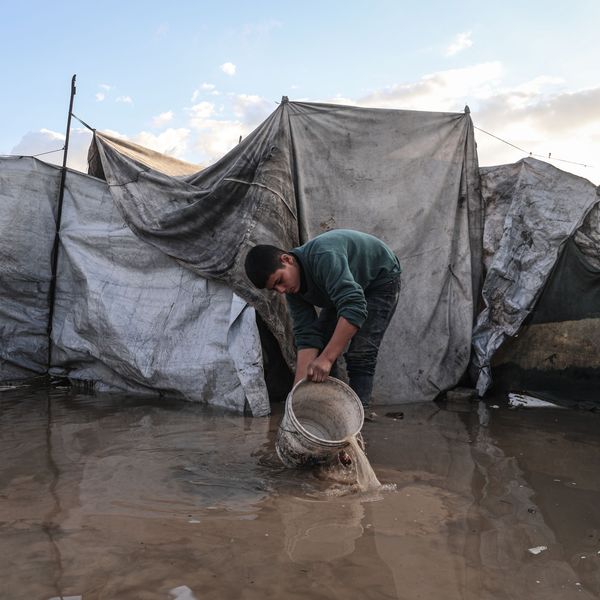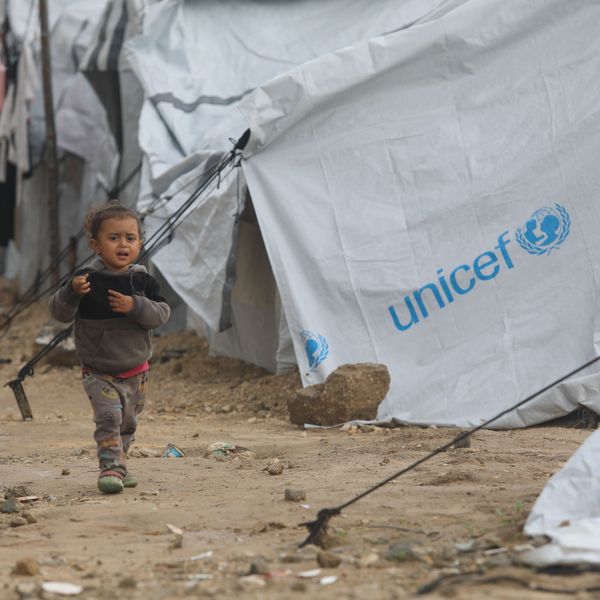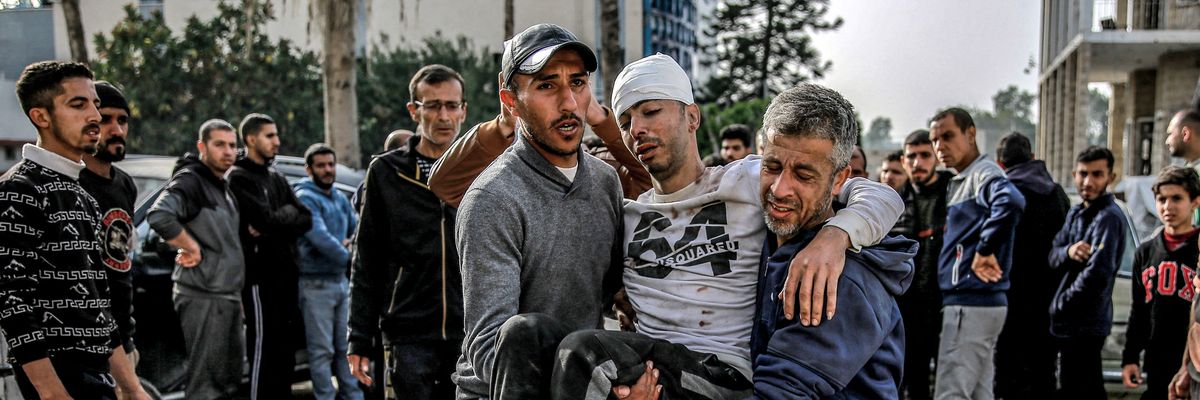The head of the World Health Organization on Saturday demanded that Israel speed up approvals for medical evacuations from Gaza as the number of people who urgently need life-saving healthcare reached roughly 9,000—and as Israeli officials threatened to send several Palestinian patients back to the besieged enclave from the East Jerusalem hospital where they've received cancer treatment.
Tedros Adhanom Ghebreyesus, director-general of WHO, warned that with only 10 of Gaza's 36 hospitals "minimally functional" following repeated attacks on the enclave's healthcare system, "thousands of patients continue to be deprived of healthcare."
At the beginning of March, WHO assessed that about 8,000 patients needed to be immediately evacuated from Gaza to receive treatment for cancer, kidney failure, and other chronic diseases as well as injuries from Israel's relentless bombing of civilian infrastructure.
That number has grown by about 1,000 in recent weeks, Tedros said.
More than 3,400 sick and injured people have been taken abroad via the southern border town of Rafah since Israel began its bombardment on October in retaliation for a Hamas-led attack.
"But many more need to be evacuated," said Tedros. "We urge Israel to speed up approvals for evacuations, so that critical patients can be treated. Every moment matters."
As Tedros called on Israel to swiftly approve medical evacuations, human rights advocates condemned Israeli authorities who aim to deport patients with cancer back to Gaza from an East Jerusalem hospital where they've been receiving advanced treatment since before the October 7 attack on southern Israel.
"Returning residents to Gaza during a military conflict and a humanitarian crisis is against international law and poses a deliberate risk to innocent lives," Physicians for Human Rights (PHR) said in a statement. "All the more so when it concerns patients who may face a death sentence due to unsanitary conditions and hunger, along with the unlikely availability of medical care."
At least 22 patients from Gaza, including several children, have been receiving treatment at Augusta Victoria Hospital, having received authorization from Israel prior to the Israel Defense Forces' (IDF) current escalation.
"I arrived here in Jerusalem with my son Hamza on September 27 last year," Qamar Abu Zoar told The Guardian on Saturday. "Hamza, who is four and a half years old, has a brain tumor and needs treatment that he couldn't receive in Gaza. While we were here, the war broke out. And since then, we have been stranded in this hospital, while my other two younger children are in the north of Gaza with my husband."
The Coordination of Government Activities in the Territories (COGAT), which oversees civilian affairs in the occupied Palestinian territories, has urged hospital officials to provide a list of patients who could be sent back to Gaza, where patients in the remaining hospitals are suffering from infections due to the use of improvised and unsterilized medical equipment, as well as from worsening malnutrition.
Israel's near-total blockade of humanitarian aid into Gaza has affected food and medicines, and CNN reported earlier this month that anesthetics, anesthesia machines, oxygen tanks, and ventilators are frequently rejected by Israeli inspectors who examine aid trucks.
Last week, the Israeli High Court of Justice halted an effort by COGAT to send 10 patients from Augusta Victoria Hospital back to Gaza, where in many cases their homes and hometowns have been decimated by Israeli bombing and shelling.
COGAT claimed the patients had finished their treatment and said it would work with aid agencies if they had a need for more medical care, coordinating "their stay with the hospitals to safeguard their health."
But as Tedros warned Saturday, the vast majority of hospitals in Gaza are no longer operating.
Israel's High Court has until April 21 to issue a final ruling on whether officials can deport patients to Gaza.
"The hospitals and the medical staff must strongly oppose the release of the patients from their custody," said PHR, "unless a guarantee is given that they will not be returned to Gaza where their lives are in danger."



